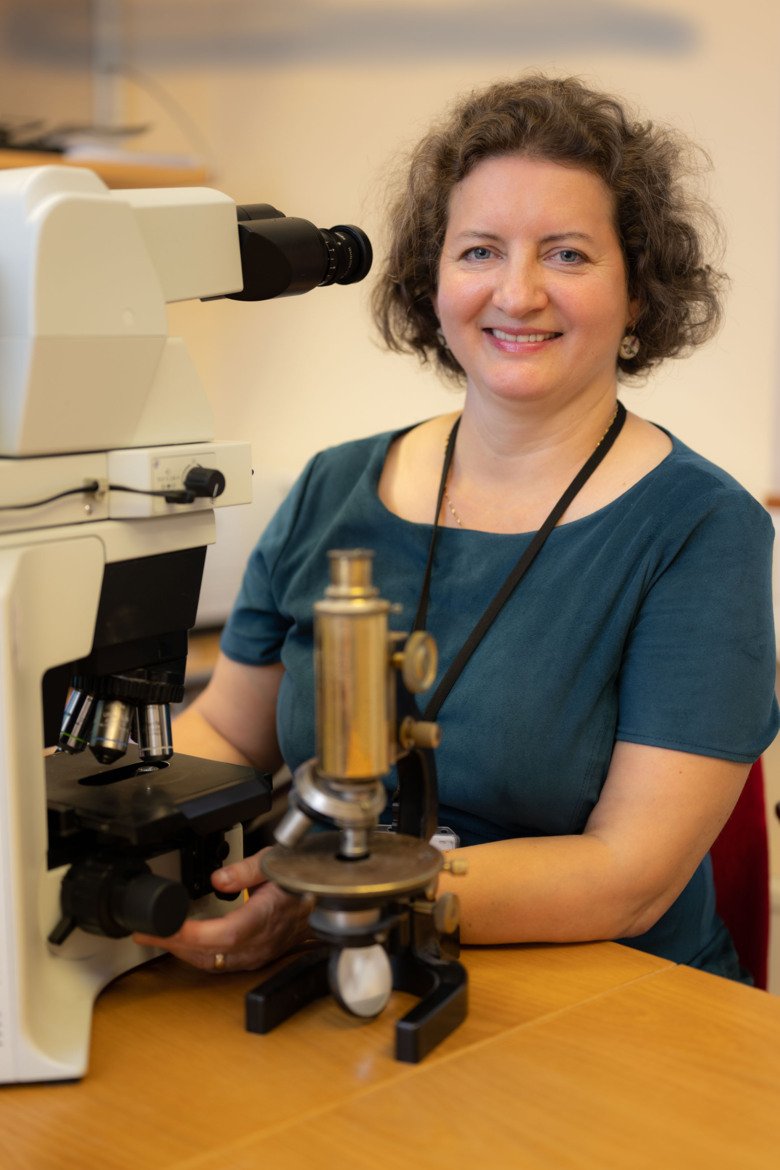Molecular pathologist focusing on cancer and pedagogy
Katalin Dobra researches cancer of the lungs, especially the part played by the protein Syndecan 1. Education is an important aspect of her professorship and she is in charge of the pathology module of the new medical programme.

What are you researching?
“I’m a pathologist and devote my time as both a clinician and a researcher to cancer of the lungs. Both lung cancer, which is one of the most common forms of cancer, and pleural cancer have a very poor prognosis for the patient. As a researcher, I’m trying to figure out the molecular mechanisms behind the development of these diseases, and put this new knowledge to clinical use. Much of my work has centred on mapping the protein Syndecan 1.”
Why this particular protein?
”Syndecan 1 is instrumental in tumour growth. When the production of the protein increases or decreases, it has an effect on hundreds of other substances via complex signal pathways. What we’re hoping is that Syndecan 1 can be used to make earlier diagnoses and to predict the efficacy of a particular therapy.
We’ve long known that Syndecan 1 sits on the cell membrane, but I’ve also shown that it’s found inside the nucleus as well. This was highly unexpected and completely transformational to the field. Today, we know that Syndecan 1 in the nucleus affects the properties and development of tumours. We’ve also seen that the introduction of Syndecan 1 can turn the course of the disease and make the tumours less aggressive. This might eventually give rise to new drugs.”
What about your educational duties?
“I’m responsible for the development of the pathology module of the new six-year medical programme. It’s based on a modern, student-activating pedagogical approach that places greater responsibility on the students and heavier demands on us as educators to encourage critical thinking and more probing study. This is a major, and difficult, task, and I have lots of colleagues helping me. We want to convey that pathology is the basis for understanding the development of every disease and that molecular pathology opens new possibilities for targeted and individual treatment. The first courses will be launched this autumn.”
Text: Anders Nilsson, in translation from Swedish
First published in the booklet ‘From Cell to Society 2022’
About Katalin Dobra
Professor of Clinical Pathology at the Department of Oncology-Pathology
Katalin Dobra was born in the Hungarian-speaking part of Transylvania, Rumania, in 1967. She graduated in medicine at Semmelweis University in Budapest, Hungary, in 1994. Since 1998, she has been working clinically at Karolinska University Hospital, initially as part of a research internship and nowadays as consultant. She became a specialist in clinical pathology and cytology in 2008.
Dobra obtained her PhD in experimental pathology at KI in 2002, and became docent in 2010. She was director of studies for KI’s diagnostic cytology programme between 2017 and 2019, and is in charge of the pathology module of the new medical programme.
Katalin Dobra was appointed Professor of Clinical Pathology at Karolinska Institutet on 13 April 2022.
